Special Report
This Is the City in Every State With the Most COVID-19 Cases

Published:
Last Updated:

The U.S. has reported more than 34.0 million confirmed COVID-19 cases as of July 27. More than 604,000 Americans have died of COVID-19 — the highest death toll of any country.
The virus has spread throughout the country in a way that has been difficult to predict, surging in one region, then showing signs of improvement, and then reappearing in other regions. Though local outbreaks may ebb and flow, the current surge in cases has been felt nearly nationwide, leading to new travel restrictions and business closures around the country.
Nationwide, there were an average of 12.6 daily new coronavirus cases per 100,000 Americans in the week ending July 27. Cumulatively, the U.S. has reported 10,279.5 cases per 100,000 Americans, and 184.3 deaths per 100,000 Americans.
The coronavirus has spread to different parts of the country in different stages throughout the pandemic. In the spring, the worst hit states were in the Northeast, as New York City became the epicenter of the nation’s crisis. The virus spread to states throughout the Sun Belt in the summer, and hit states in the Midwest and West during the fall. Now, nearly every state is categorized as a COVID-19 hotspot, according to definitions based on new cases per capita from the nonprofit health organization Kaiser Family Foundation.
While the nation’s largest metropolitan areas were hit hardest in the early months of the pandemic, nearly every city has suffered from the virus. Outbreaks are particularly likely to occur in places where large numbers of people tend to congregate, leaving cities with high concentrations of colleges, correctional facilities, and nursing homes particularly at risk.
To determine the metropolitan area in each state with the highest number of COVID-19 cases per capita, 24/7 Wall St. compiled and reviewed data from state and local health departments. We ranked metropolitan areas according to the number of confirmed COVID-19 cases per 100,000 residents as of July 27. Data was aggregated from the county level to the metropolitan area level using boundary definitions from the U.S. Census Bureau. Population data used to adjust case and death totals came from the U.S. Census Bureau’s 2019 American Community Survey and are five-year estimates.
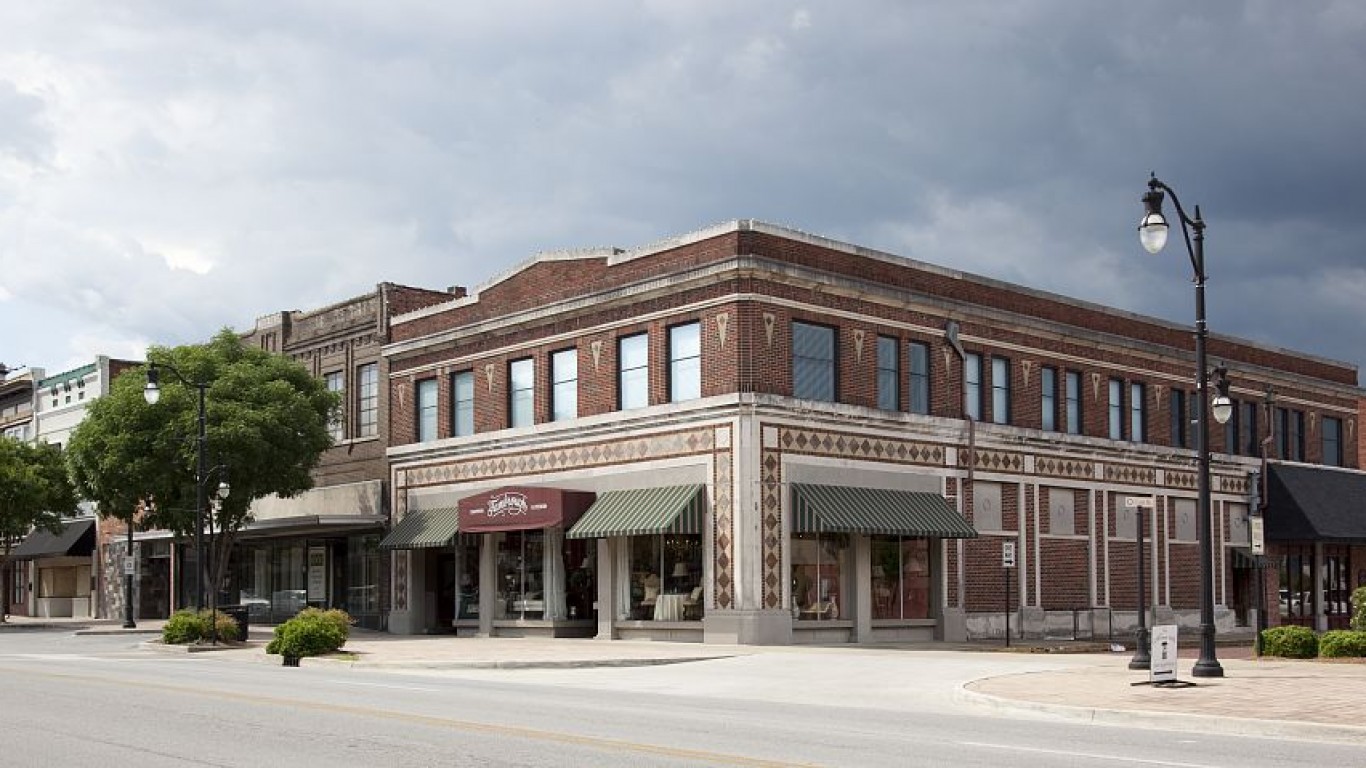
Alabama: Gadsden
COVID-19 cases as of July 27 in Gadsden: 14,512 (14,123.9 per 100,000)
COVID-19 cases as of July 27 in Alabama: 560,917 (11,439.8 per 100,000)
Peak pandemic unemployment in Gadsden: 19.2% (April 2020)
Gadsden population: 102,748 (192.1 per sq. mi.)
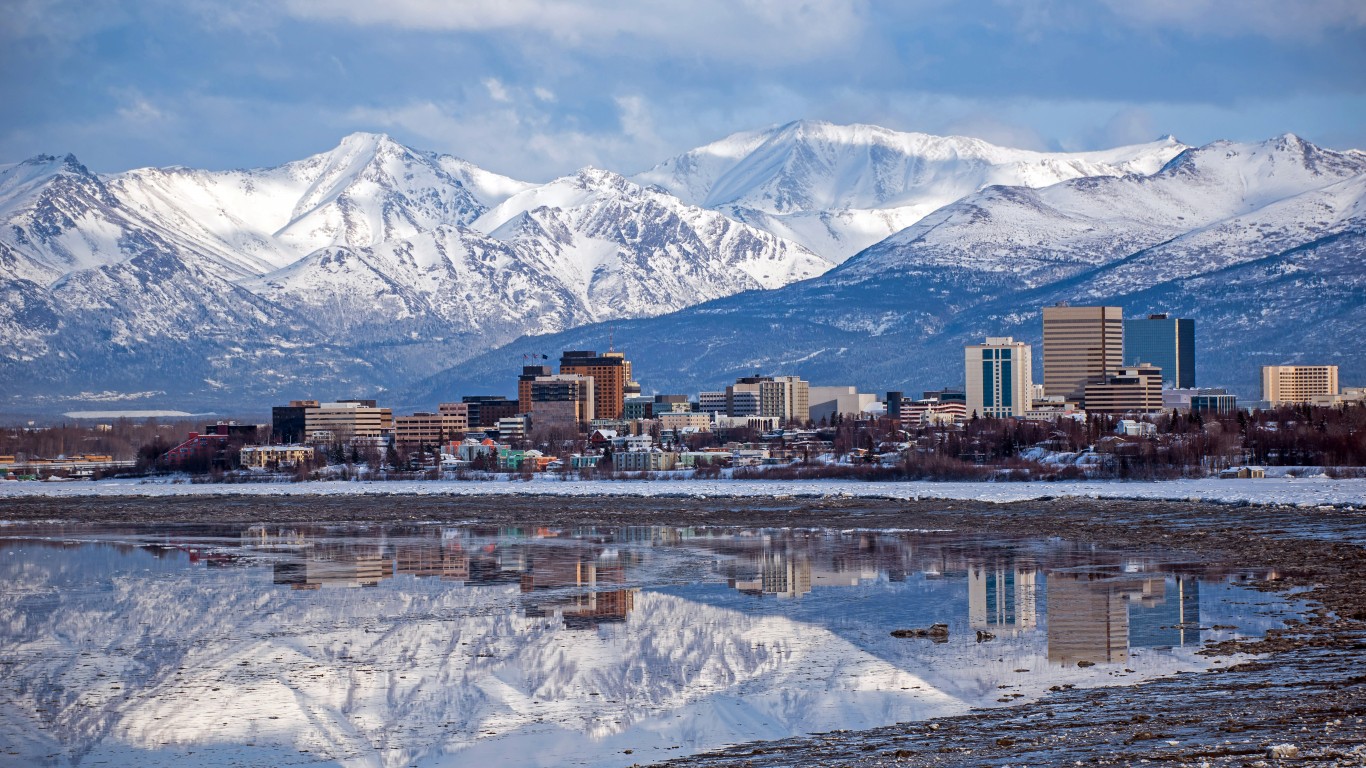
Alaska: Anchorage
COVID-19 cases as of July 27 in Anchorage: 44,273 (11,098.8 per 100,000)
COVID-19 cases as of July 27 in Alaska: 69,453 (9,494.0 per 100,000)
Peak pandemic unemployment in Anchorage: 14.8% (April 2020)
Anchorage population: 398,900 (15.2 per sq. mi.)
These are all the counties in Alaska where COVID-19 is slowing (and where it’s still getting worse).
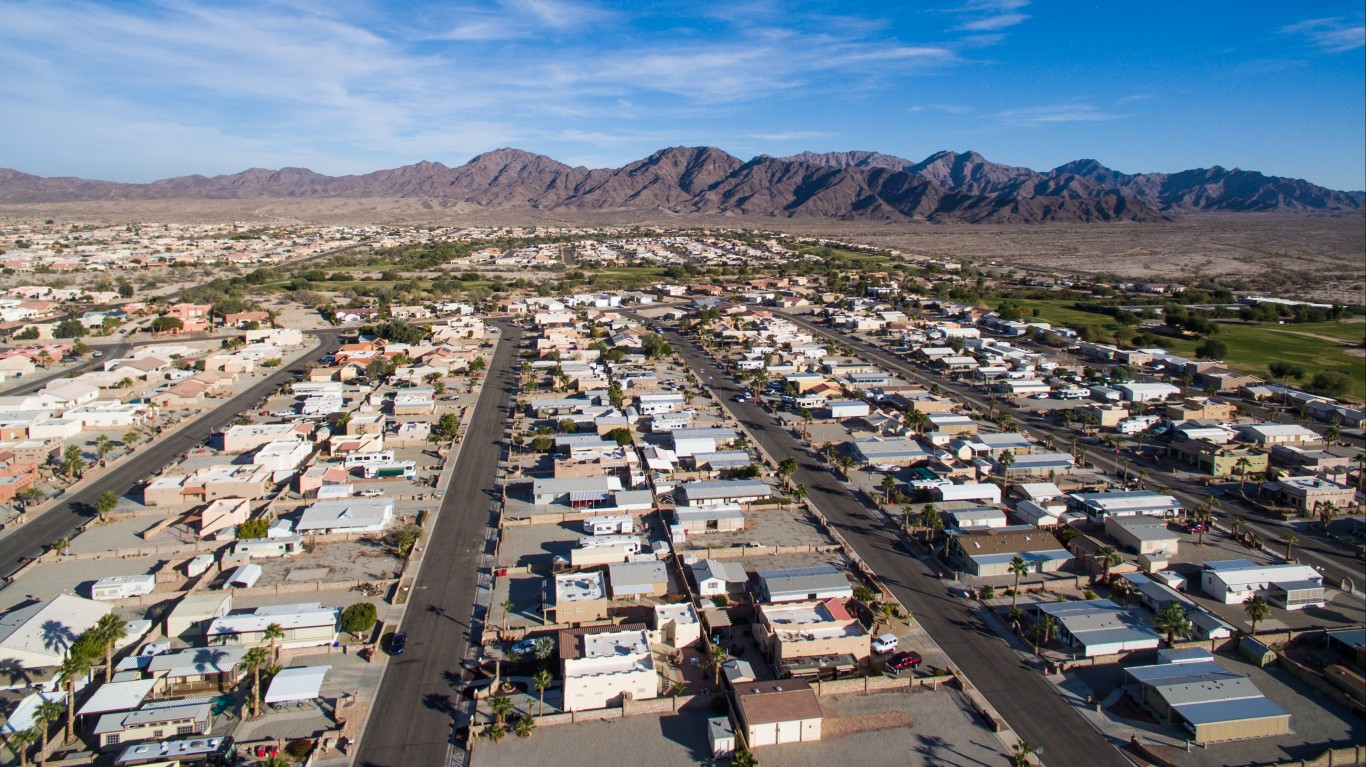
Arizona: Yuma
COVID-19 cases as of July 27 in Yuma: 37,446 (17,876.7 per 100,000)
COVID-19 cases as of July 27 in Arizona: 908,248 (12,478.1 per 100,000)
Peak pandemic unemployment in Yuma: 25.0% (April 2020)
Yuma population: 209,468 (38.0 per sq. mi.)
Arkansas: Pine Bluff
COVID-19 cases as of July 27 in Pine Bluff: 14,169 (15,593.5 per 100,000)
COVID-19 cases as of July 27 in Arkansas: 362,580 (12,014.7 per 100,000)
Peak pandemic unemployment in Pine Bluff: 10.7% (April 2020)
Pine Bluff population: 90,865 (44.8 per sq. mi.)
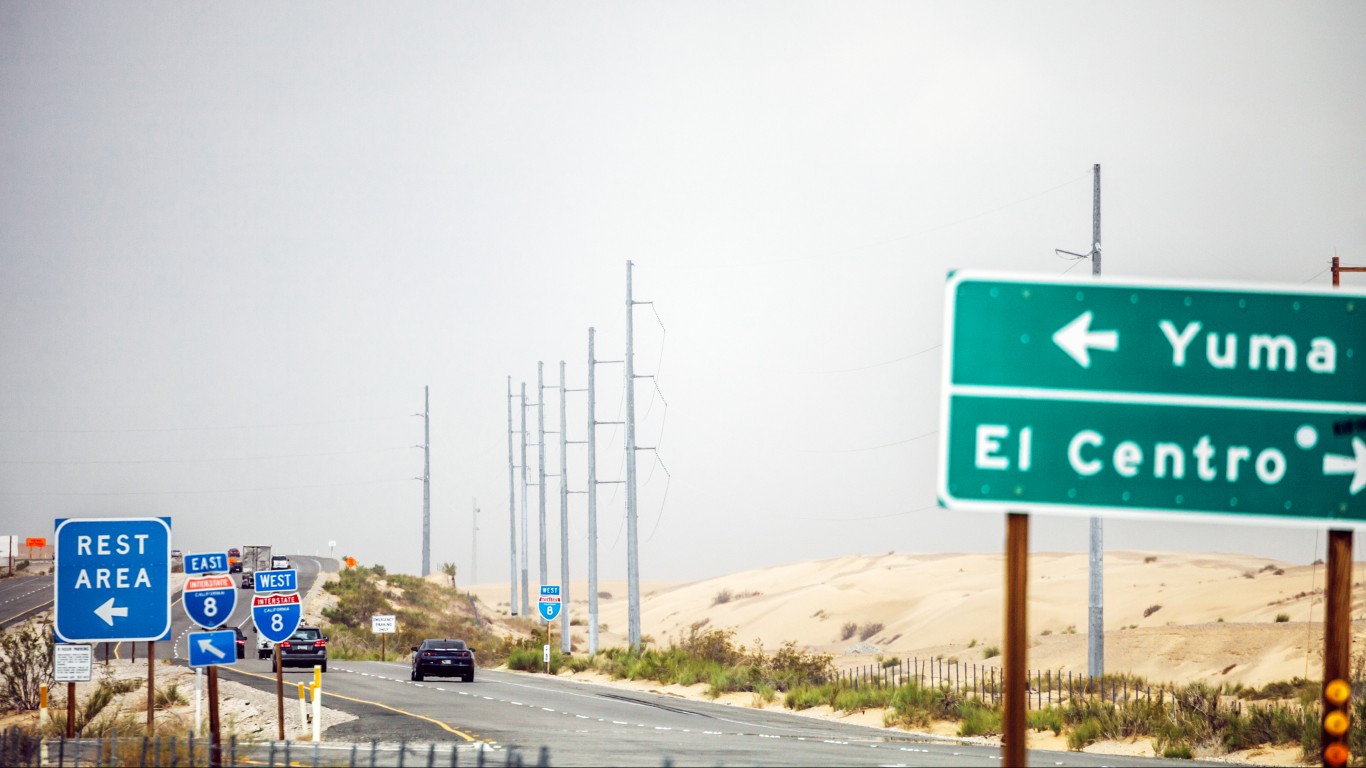
California: El Centro
COVID-19 cases as of July 27 in El Centro: 28,933 (16,011.5 per 100,000)
COVID-19 cases as of July 27 in California: 3,748,365 (9,486.6 per 100,000)
Peak pandemic unemployment in El Centro: 30.0% (April 2020)
El Centro population: 180,701 (43.3 per sq. mi.)
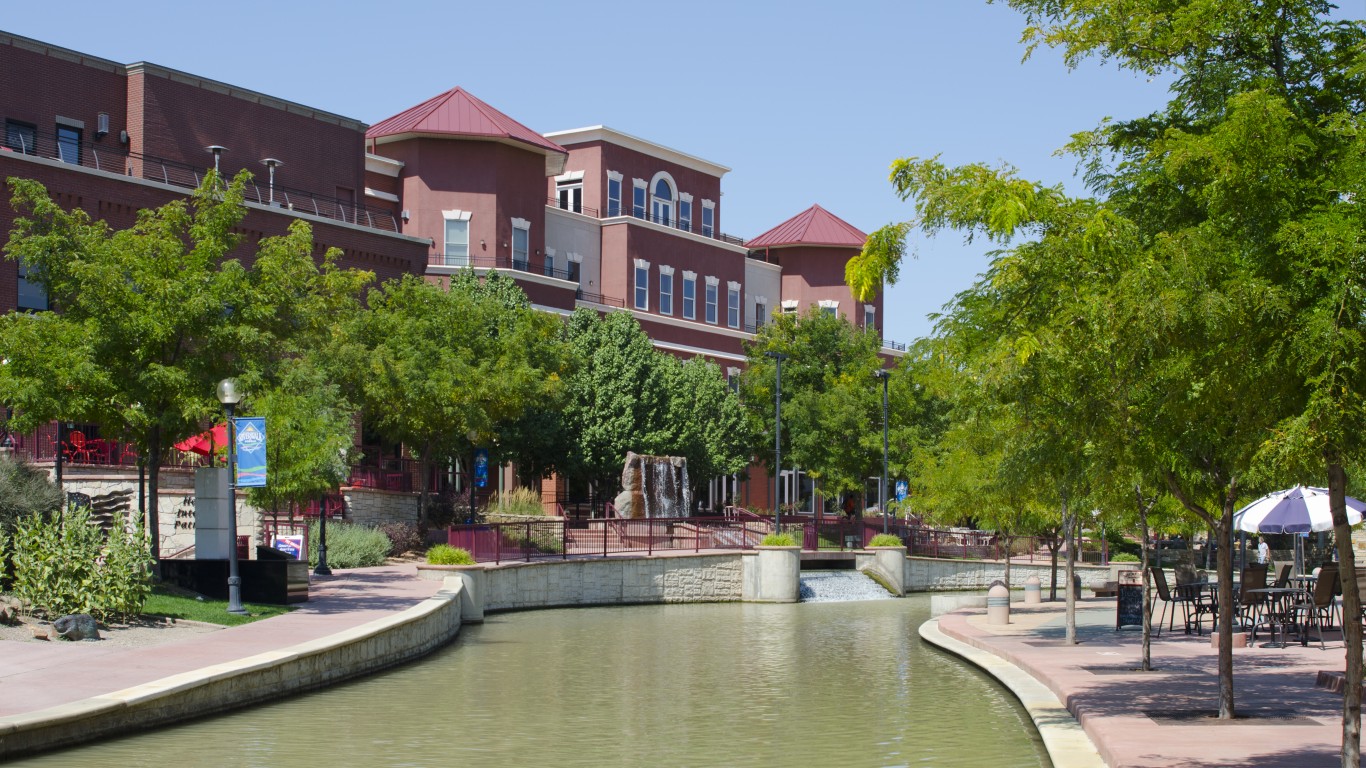
Colorado: Pueblo
COVID-19 cases as of July 27 in Pueblo: 19,786 (11,920.6 per 100,000)
COVID-19 cases as of July 27 in Colorado: 565,294 (9,816.3 per 100,000)
Peak pandemic unemployment in Pueblo: 11.8% (April 2020)
Pueblo population: 165,982 (69.6 per sq. mi.)
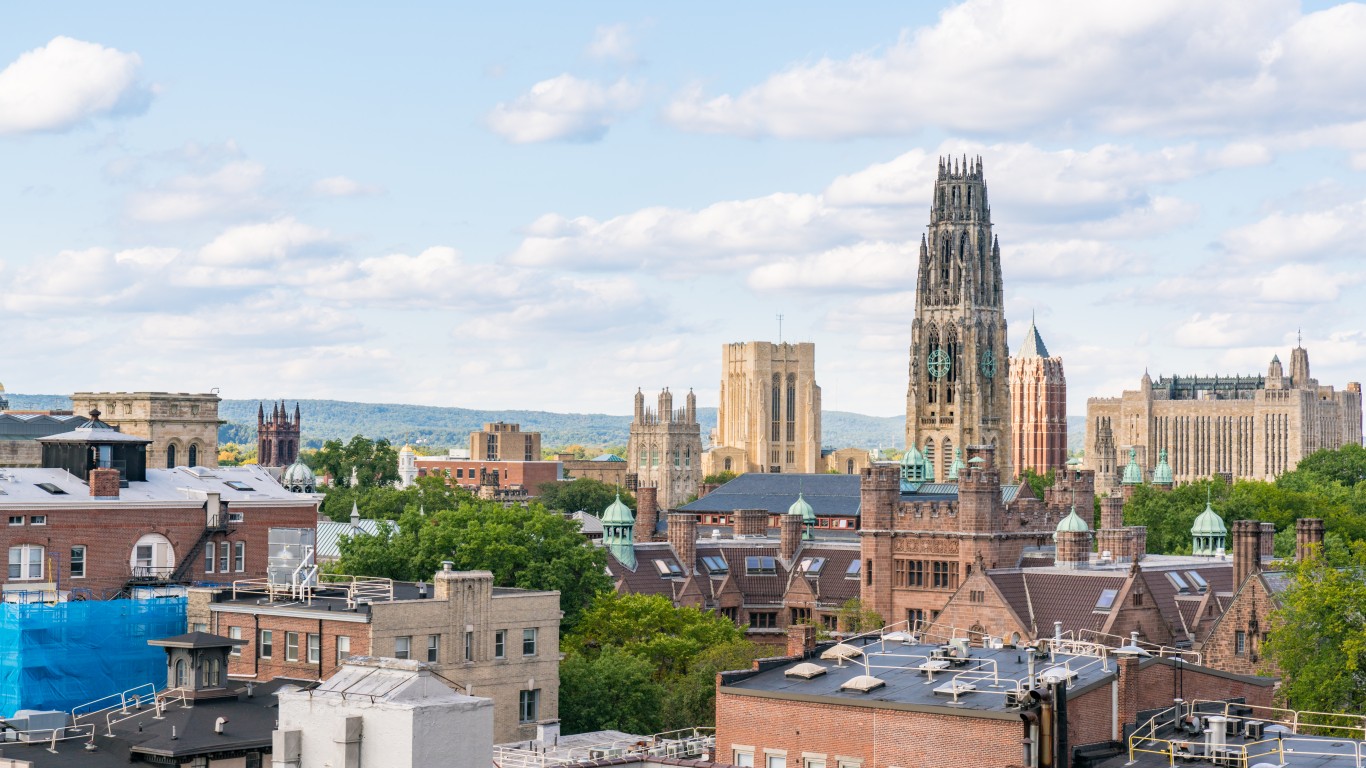
Connecticut: New Haven-Milford
COVID-19 cases as of July 27 in New Haven: 92,963 (10,841.0 per 100,000)
COVID-19 cases as of July 27 in Connecticut: 350,675 (9,835.8 per 100,000)
Peak pandemic unemployment in New Haven: 9.5% (July 2020)
New Haven population: 857,513 (1,418.5 per sq. mi.)
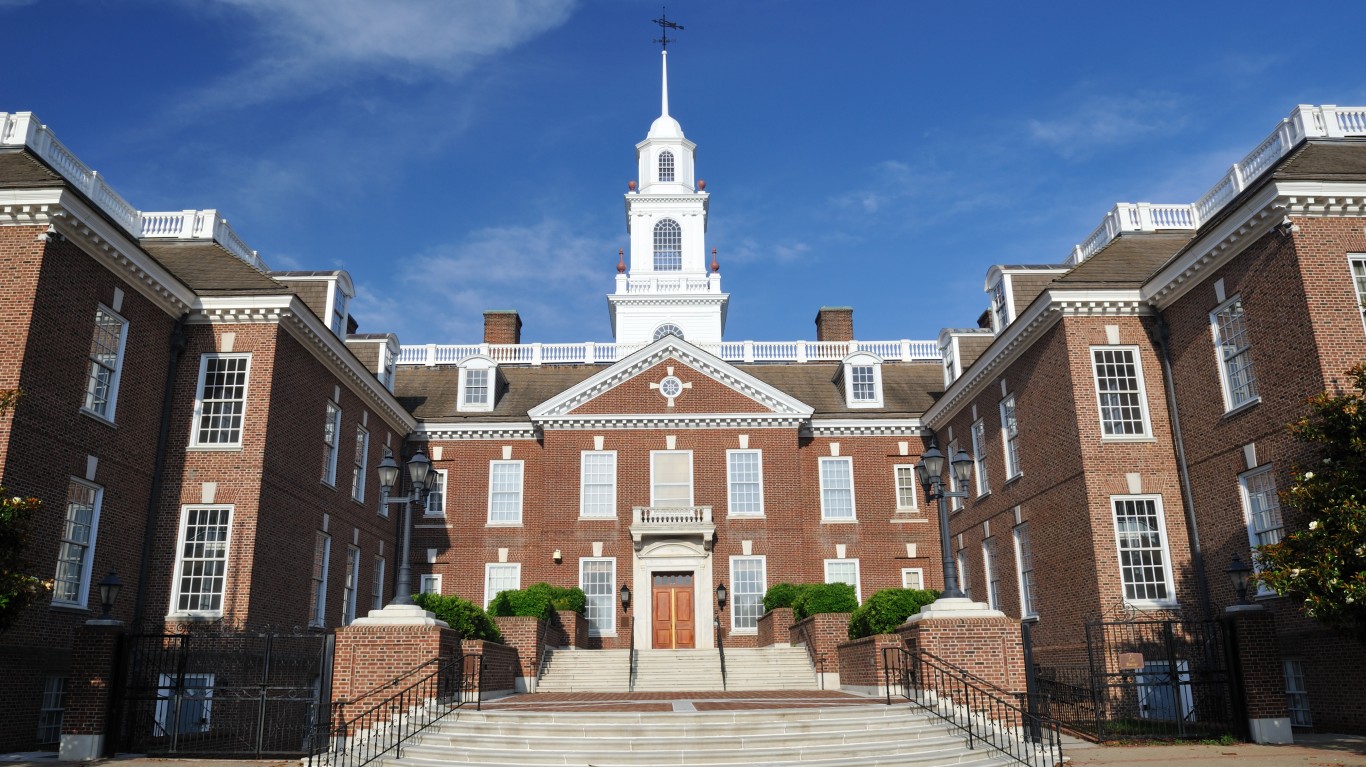
Delaware: Dover
COVID-19 cases as of July 27 in Dover: 18,385 (10,404.7 per 100,000)
COVID-19 cases as of July 27 in Delaware: 110,387 (11,336.1 per 100,000)
Peak pandemic unemployment in Dover: 17.3% (May 2020)
Dover population: 176,699 (301.4 per sq. mi.)
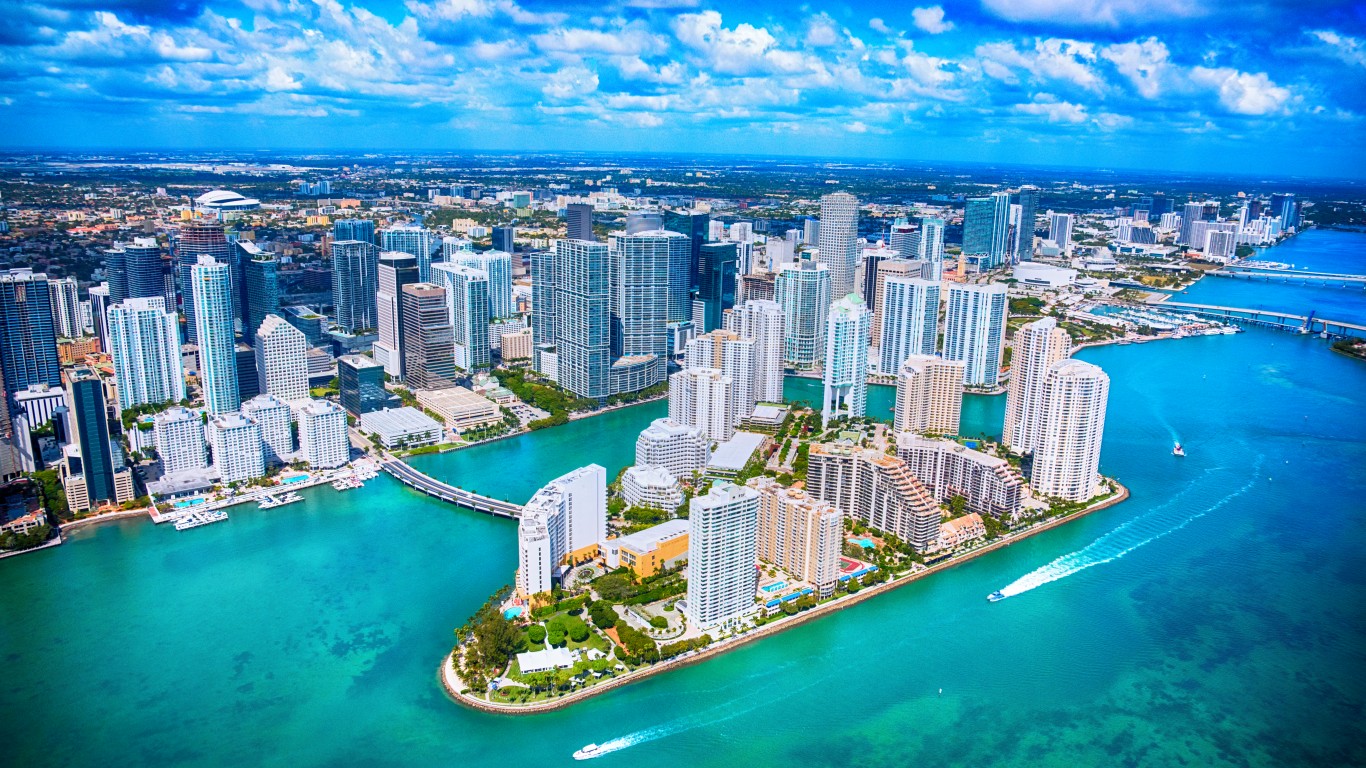
Florida: Miami-Fort Lauderdale-Pompano Beach
COVID-19 cases as of July 27 in Miami: 934,615 (15,345.1 per 100,000)
COVID-19 cases as of July 27 in Florida: 2,406,794 (11,206.0 per 100,000)
Peak pandemic unemployment in Miami: 13.8% (April 2020)
Miami population: 6,090,660 (1,199.6 per sq. mi.)

Georgia: Dalton
COVID-19 cases as of July 27 in Dalton: 22,167 (15,397.9 per 100,000)
COVID-19 cases as of July 27 in Georgia: 1,145,976 (10,793.4 per 100,000)
Peak pandemic unemployment in Dalton: 20.3% (April 2020)
Dalton population: 143,961 (226.7 per sq. mi.)

Hawaii: Kahului-Wailuku-Lahaina
COVID-19 cases as of July 27 in Kahului: 5,042 (3,037.7 per 100,000)
COVID-19 cases as of July 27 in Hawaii: 37,717 (2,663.9 per 100,000)
Peak pandemic unemployment in Kahului: 34.8% (April 2020)
Kahului population: 165,979 (142.9 per sq. mi.)
These are all the counties in Hawaii where COVID-19 is slowing (and where it’s still getting worse).

Idaho: Idaho Falls
COVID-19 cases as of July 27 in Idaho Falls: 18,445 (12,676.4 per 100,000)
COVID-19 cases as of July 27 in Idaho: 196,856 (11,015.6 per 100,000)
Peak pandemic unemployment in Idaho Falls: 8.0% (April 2020)
Idaho Falls population: 145,507 (28.0 per sq. mi.)
These are all the counties in Idaho where COVID-19 is slowing (and where it’s still getting worse).

Illinois: Kankakee
COVID-19 cases as of July 27 in Kankakee: 14,700 (13,286.7 per 100,000)
COVID-19 cases as of July 27 in Illinois: 1,399,946 (11,047.7 per 100,000)
Peak pandemic unemployment in Kankakee: 16.9% (April 2020)
Kankakee population: 110,637 (163.5 per sq. mi.)
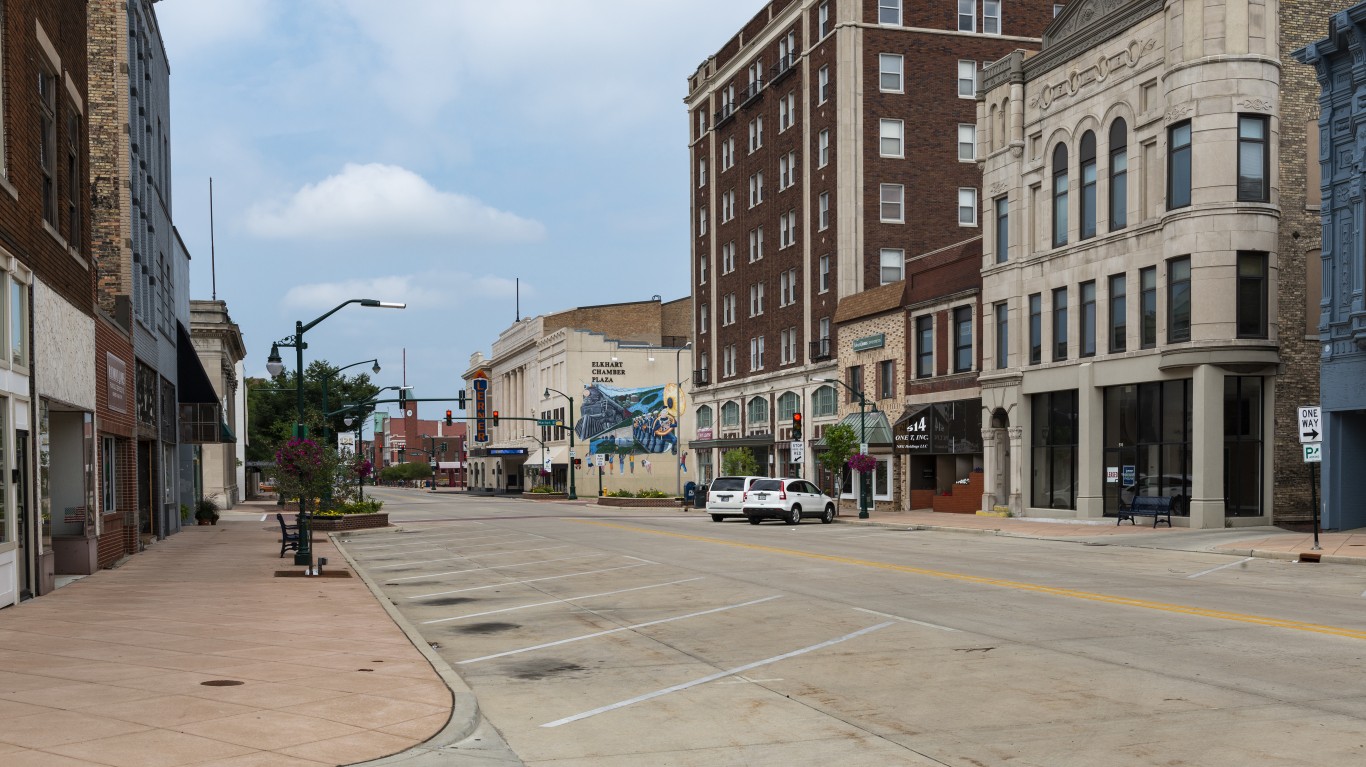
Indiana: Elkhart-Goshen
COVID-19 cases as of July 27 in Elkhart: 29,663 (14,501.0 per 100,000)
COVID-19 cases as of July 27 in Indiana: 760,163 (11,291.4 per 100,000)
Peak pandemic unemployment in Elkhart: 29.4% (April 2020)
Elkhart population: 204,558 (441.6 per sq. mi.)
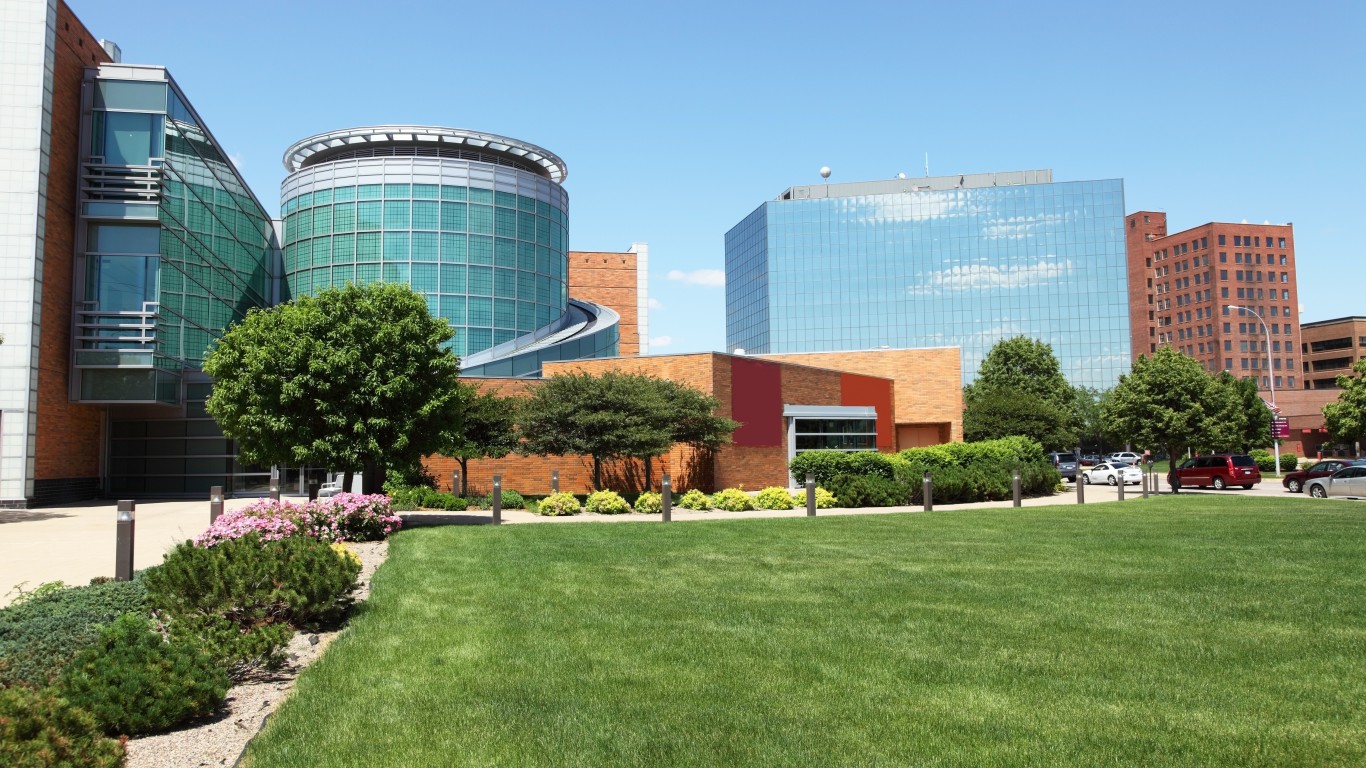
Iowa: Sioux City, IA-NE-SD
COVID-19 cases as of July 27 in Sioux City: 22,107 (15,368.5 per 100,000)
COVID-19 cases as of July 27 in Iowa: 375,726 (11,908.6 per 100,000)
Peak pandemic unemployment in Sioux City: 9.8% (April 2020)
Sioux City population: 143,846 (69.4 per sq. mi.)
These are all the counties in Iowa where COVID-19 is slowing (and where it’s still getting worse).

Kansas: Wichita
COVID-19 cases as of July 27 in Wichita: 72,536 (11,374.8 per 100,000)
COVID-19 cases as of July 27 in Kansas: 323,385 (11,100.2 per 100,000)
Peak pandemic unemployment in Wichita: 18.2% (April 2020)
Wichita population: 637,690 (153.7 per sq. mi.)
These are all the counties in Kansas where COVID-19 is slowing (and where it’s still getting worse).
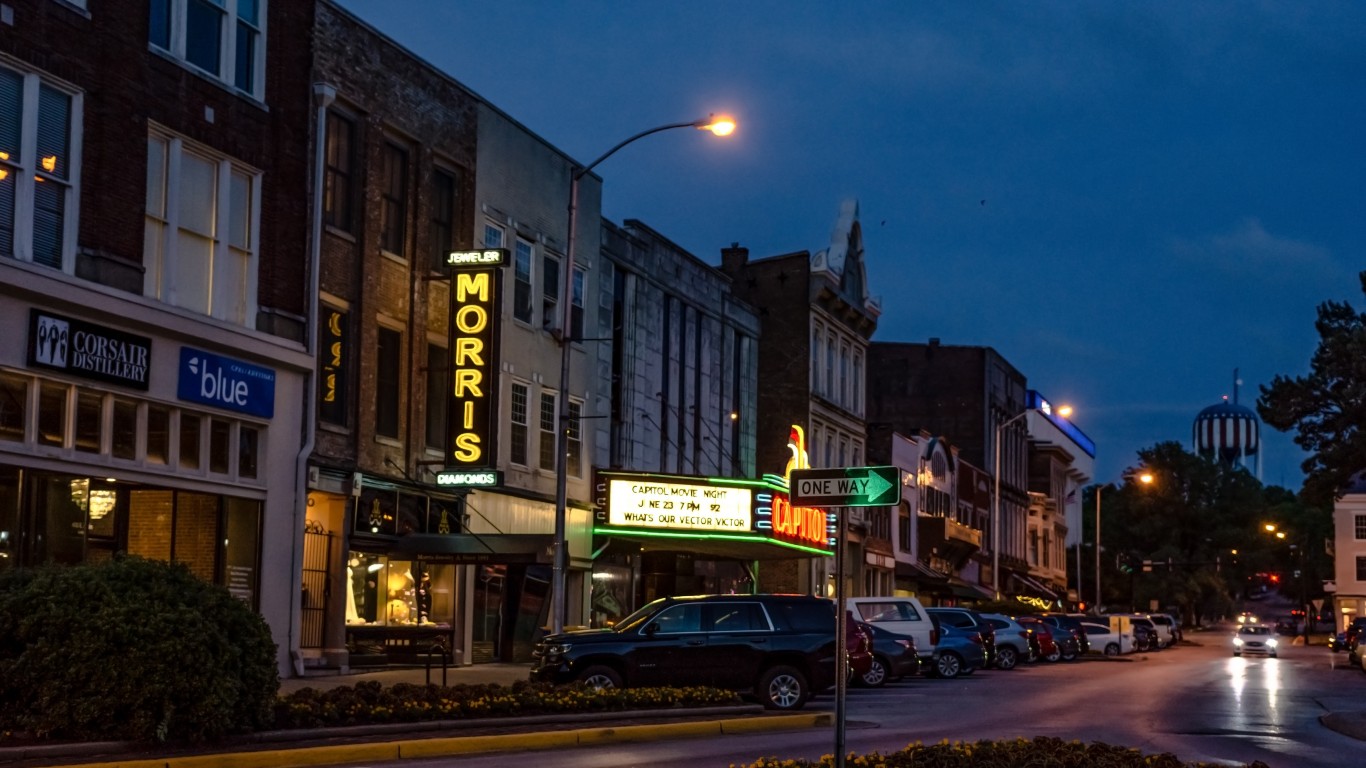
Kentucky: Bowling Green
COVID-19 cases as of July 27 in Bowling Green: 21,188 (12,142.3 per 100,000)
COVID-19 cases as of July 27 in Kentucky: 469,710 (10,513.5 per 100,000)
Peak pandemic unemployment in Bowling Green: 18.8% (April 2020)
Bowling Green population: 174,498 (108.1 per sq. mi.)
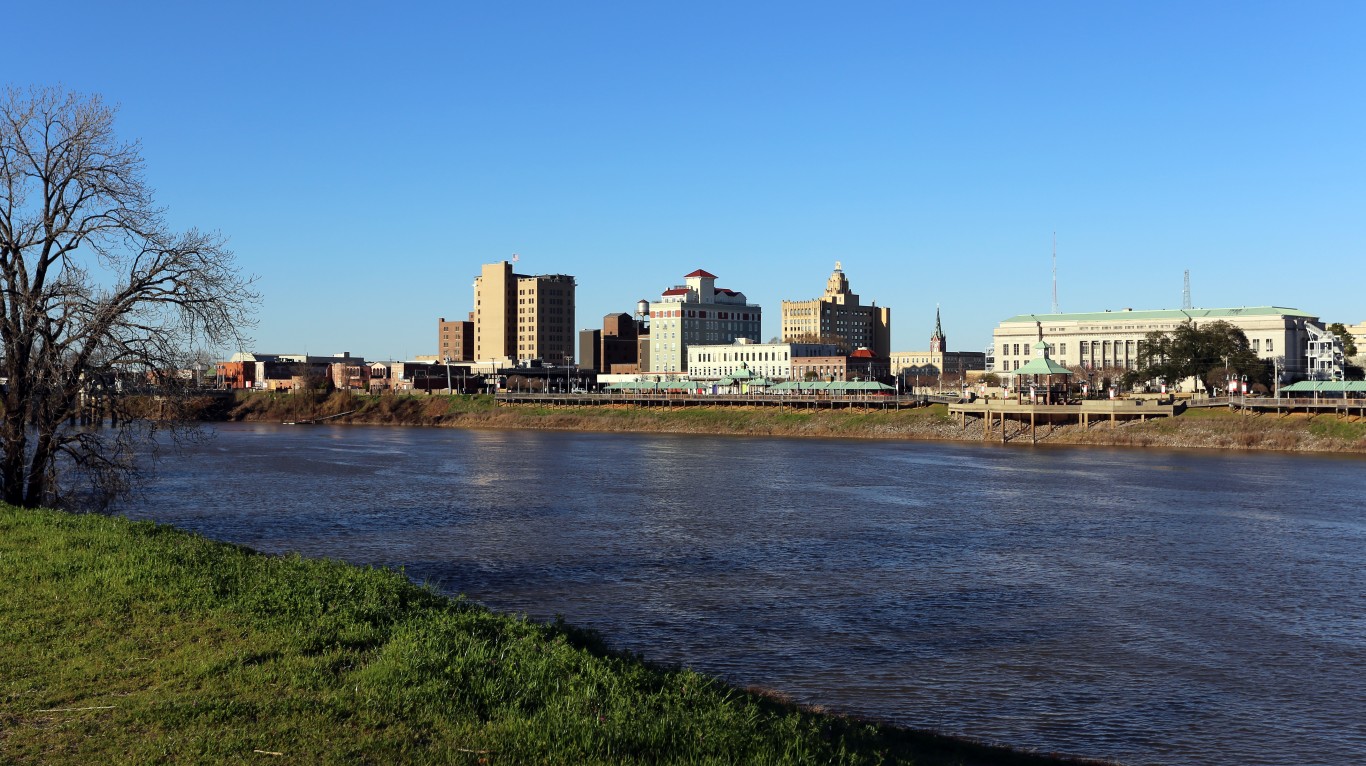
Louisiana: Monroe
COVID-19 cases as of July 27 in Monroe: 25,372 (12,470.4 per 100,000)
COVID-19 cases as of July 27 in Louisiana: 495,945 (10,668.3 per 100,000)
Peak pandemic unemployment in Monroe: 12.8% (April 2020)
Monroe population: 203,457 (89.1 per sq. mi.)

Maine: Lewiston-Auburn
COVID-19 cases as of July 27 in Lewiston: 8,474 (7,875.3 per 100,000)
COVID-19 cases as of July 27 in Maine: 69,474 (5,168.4 per 100,000)
Peak pandemic unemployment in Lewiston: 10.3% (July 2020)
Lewiston population: 107,602 (230.0 per sq. mi.)
These are all the counties in Maine where COVID-19 is slowing (and where it’s still getting worse).

Maryland: Cumberland, MD-WV
COVID-19 cases as of July 27 in Cumberland: 10,081 (10,222.9 per 100,000)
COVID-19 cases as of July 27 in Maryland: 464,197 (7,678.2 per 100,000)
Peak pandemic unemployment in Cumberland: 14.0% (April 2020)
Cumberland population: 98,612 (131.1 per sq. mi.)

Massachusetts: Boston-Cambridge-Newton, MA-NH
COVID-19 cases as of July 27 in Boston: 467,672 (9,677.9 per 100,000)
COVID-19 cases as of July 27 in Massachusetts: 712,272 (10,334.0 per 100,000)
Peak pandemic unemployment in Boston: 16.9% (June 2020)
Boston population: 4,832,346 (1,385.7 per sq. mi.)

Michigan: Grand Rapids-Kentwood
COVID-19 cases as of July 27 in Grand Rapids: 119,598 (11,257.4 per 100,000)
COVID-19 cases as of July 27 in Michigan: 1,003,432 (10,047.5 per 100,000)
Peak pandemic unemployment in Grand Rapids: 22.3% (April 2020)
Grand Rapids population: 1,062,392 (395.4 per sq. mi.)
Minnesota: St. Cloud
COVID-19 cases as of July 27 in St. Cloud: 28,489 (14,346.3 per 100,000)
COVID-19 cases as of July 27 in Minnesota: 607,524 (10,772.4 per 100,000)
Peak pandemic unemployment in St. Cloud: 9.4% (May 2020)
St. Cloud population: 198,581 (113.4 per sq. mi.)
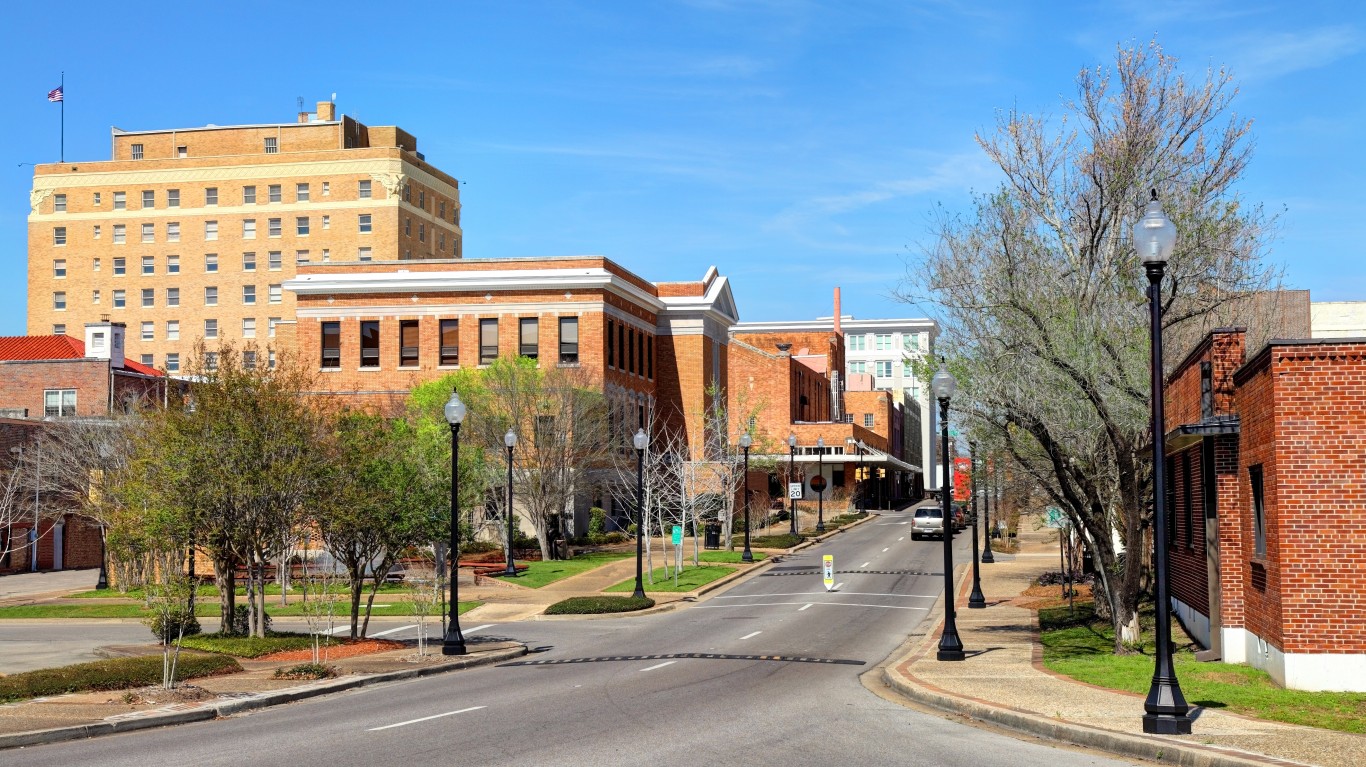
Mississippi: Hattiesburg
COVID-19 cases as of July 27 in Hattiesburg: 18,837 (11,200.7 per 100,000)
COVID-19 cases as of July 27 in Mississippi: 326,804 (10,980.8 per 100,000)
Peak pandemic unemployment in Hattiesburg: 13.3% (April 2020)
Hattiesburg population: 168,177 (83.1 per sq. mi.)
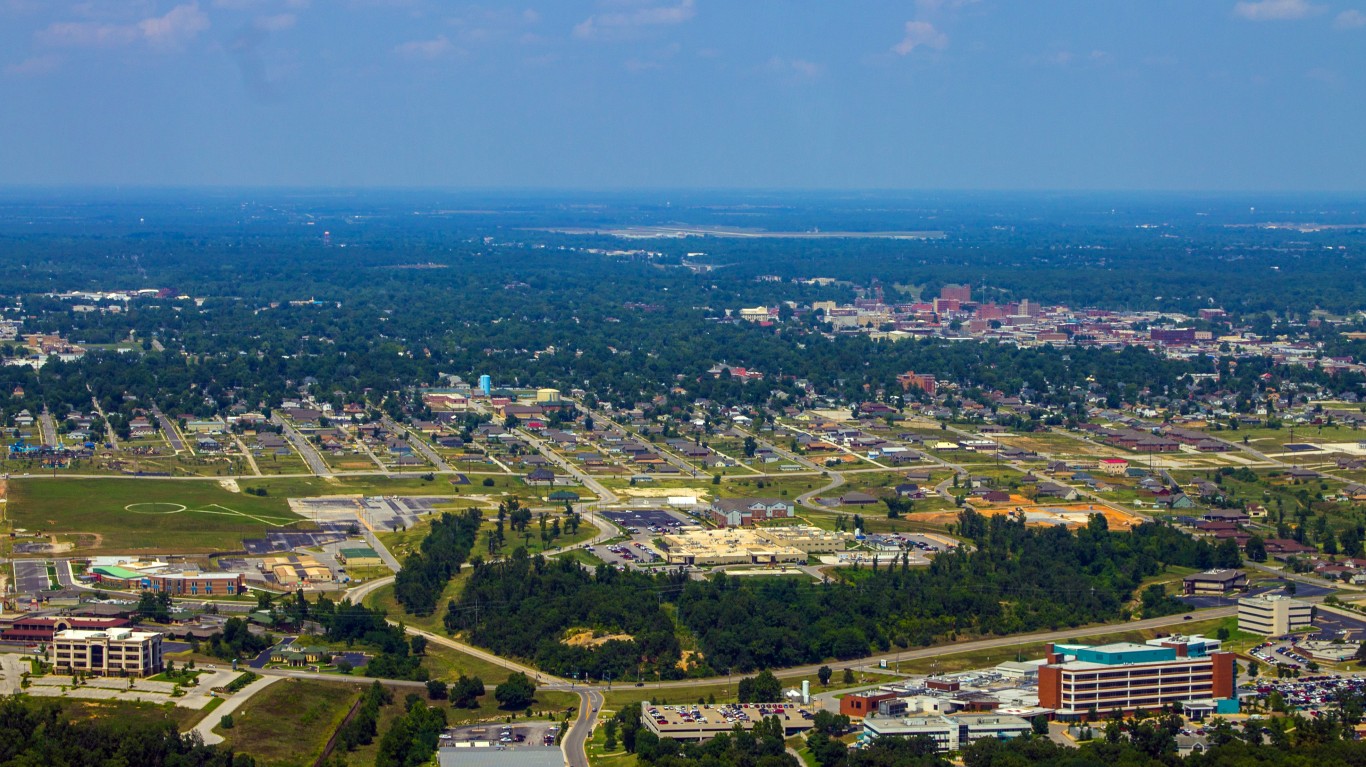
Missouri: Joplin
COVID-19 cases as of July 27 in Joplin: 24,982 (14,027.0 per 100,000)
COVID-19 cases as of July 27 in Missouri: 647,403 (10,548.4 per 100,000)
Peak pandemic unemployment in Joplin: 10.6% (April 2020)
Joplin population: 178,100 (141.0 per sq. mi.)
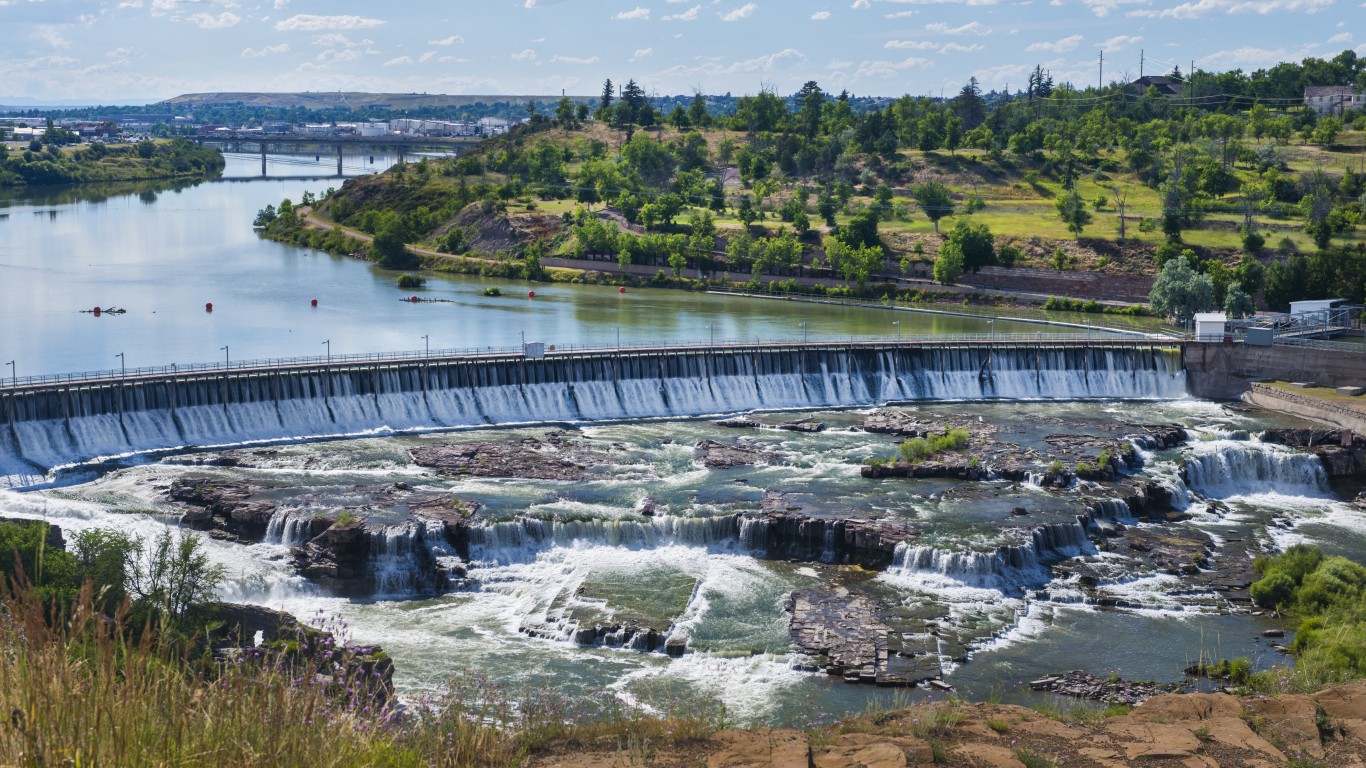
Montana: Great Falls
COVID-19 cases as of July 27 in Great Falls: 9,623 (11,789.3 per 100,000)
COVID-19 cases as of July 27 in Montana: 114,663 (10,728.4 per 100,000)
Peak pandemic unemployment in Great Falls: 12.6% (April 2020)
Great Falls population: 81,625 (30.3 per sq. mi.)

Nebraska: Omaha-Council Bluffs, NE-IA
COVID-19 cases as of July 27 in Omaha: 116,781 (12,533.1 per 100,000)
COVID-19 cases as of July 27 in Nebraska: 225,861 (11,676.0 per 100,000)
Peak pandemic unemployment in Omaha: 10.2% (April 2020)
Omaha population: 931,779 (214.2 per sq. mi.)

Nevada: Las Vegas-Henderson-Paradise
COVID-19 cases as of July 27 in Las Vegas: 272,152 (12,472.6 per 100,000)
COVID-19 cases as of July 27 in Nevada: 343,096 (11,138.9 per 100,000)
Peak pandemic unemployment in Las Vegas: 34.2% (April 2020)
Las Vegas population: 2,182,004 (276.5 per sq. mi.)
These are all the counties in Nevada where COVID-19 is slowing (and where it’s still getting worse).

New Hampshire: Manchester-Nashua
COVID-19 cases as of July 27 in Manchester: 36,560 (8,851.6 per 100,000)
COVID-19 cases as of July 27 in New Hampshire: 99,907 (7,347.7 per 100,000)
Peak pandemic unemployment in Manchester: 17.5% (April 2020)
Manchester population: 413,035 (471.4 per sq. mi.)

New Jersey: Atlantic City-Hammonton
COVID-19 cases as of July 27 in Atlantic City: 31,930 (11,999.0 per 100,000)
COVID-19 cases as of July 27 in New Jersey: 1,028,931 (11,584.2 per 100,000)
Peak pandemic unemployment in Atlantic City: 35.2% (June 2020)
Atlantic City population: 266,105 (478.9 per sq. mi.)
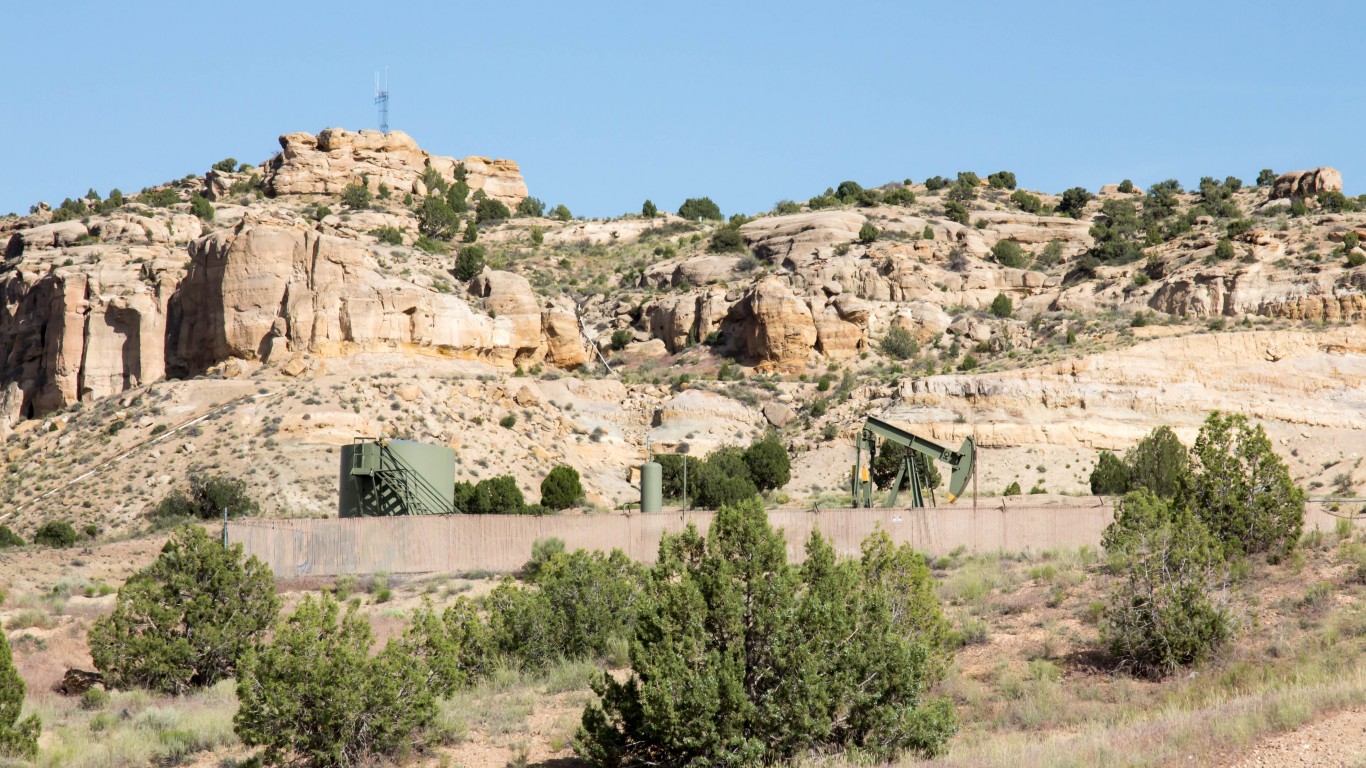
New Mexico: Farmington
COVID-19 cases as of July 27 in Farmington: 15,871 (12,544.8 per 100,000)
COVID-19 cases as of July 27 in New Mexico: 207,189 (9,881.1 per 100,000)
Peak pandemic unemployment in Farmington: 14.5% (July 2020)
Farmington population: 126,515 (22.9 per sq. mi.)
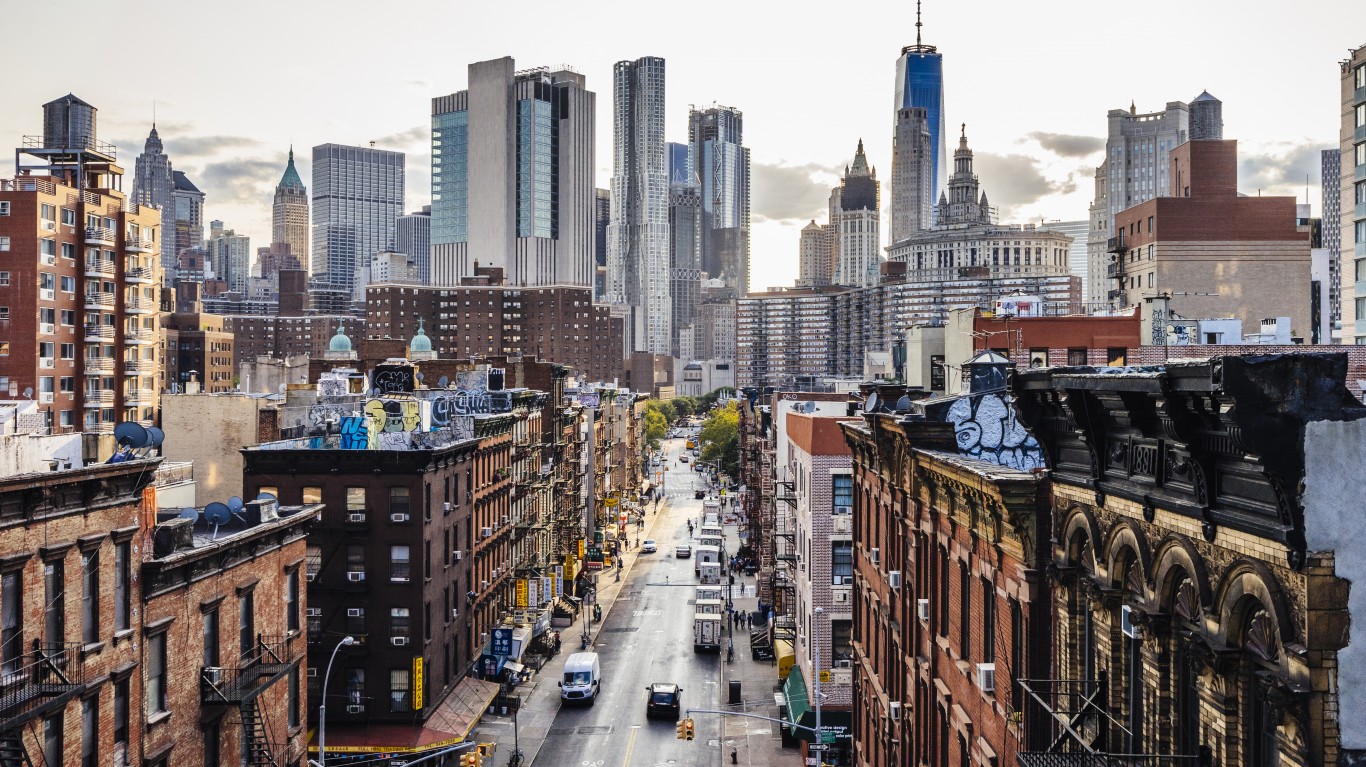
New York: New York-Newark-Jersey City, NY-NJ-PA
COVID-19 cases as of July 27 in New York: 2,335,172 (12,103.0 per 100,000)
COVID-19 cases as of July 27 in New York: 2,125,280 (10,924.9 per 100,000)
Peak pandemic unemployment in New York: 17.2% (June 2020)
New York population: 19,294,236 (2,885.4 per sq. mi.)
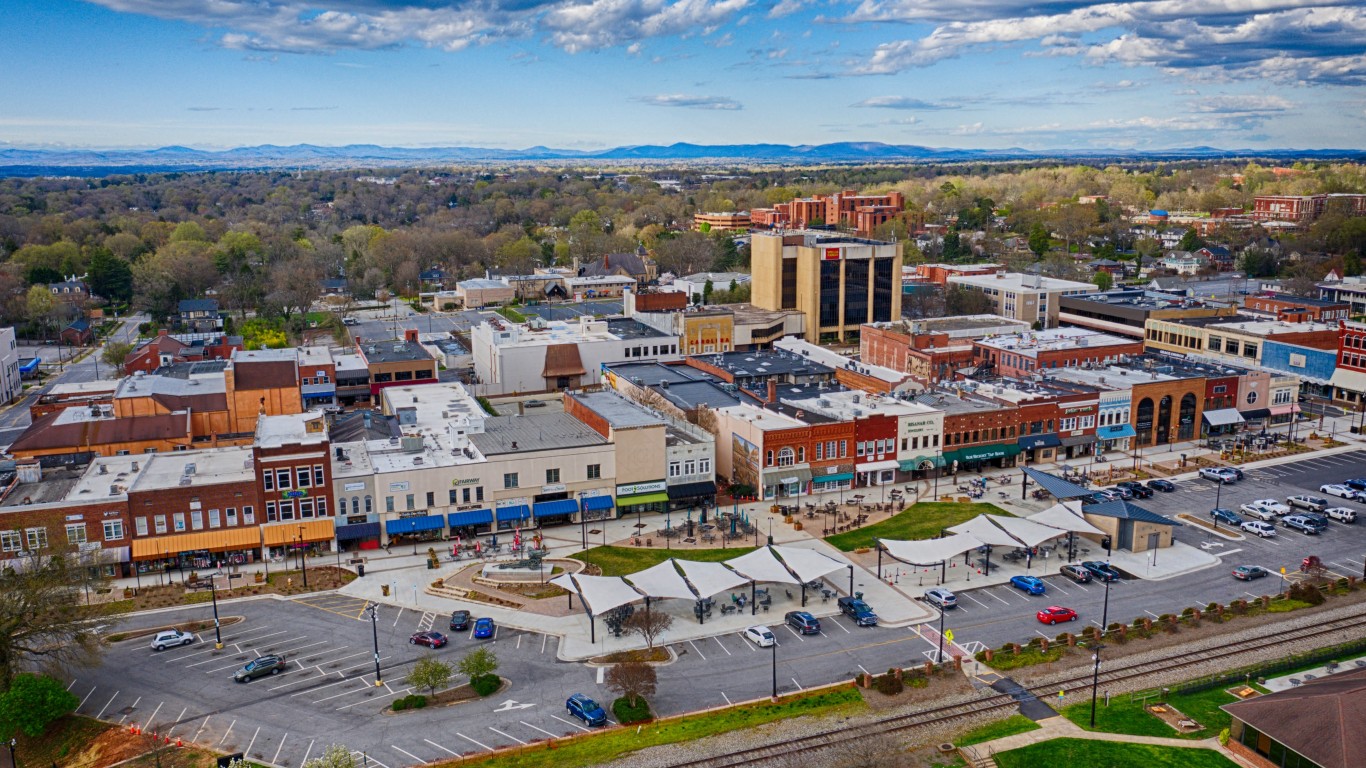
North Carolina: Hickory-Lenoir-Morganton
COVID-19 cases as of July 27 in Hickory: 44,345 (12,093.7 per 100,000)
COVID-19 cases as of July 27 in North Carolina: 1,022,876 (9,752.7 per 100,000)
Peak pandemic unemployment in Hickory: 18.2% (April 2020)
Hickory population: 366,678 (223.9 per sq. mi.)
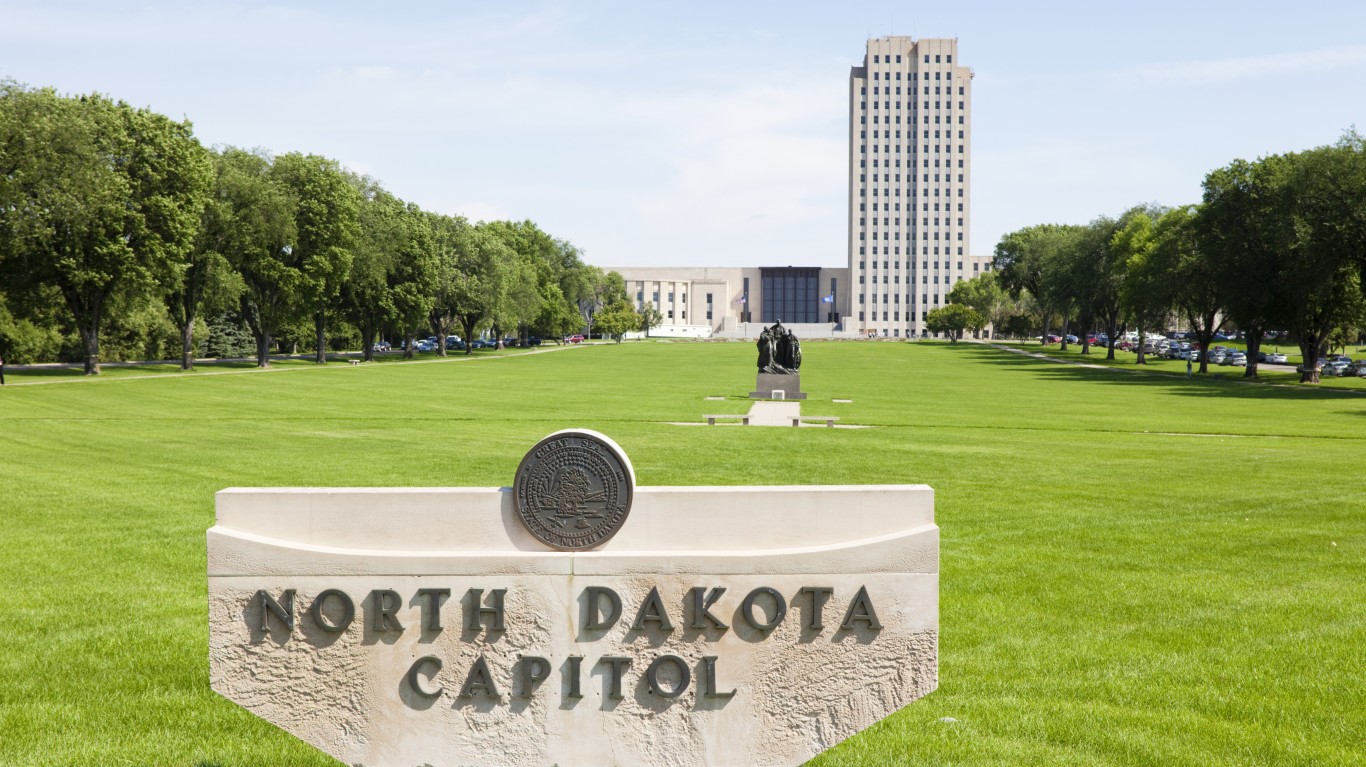
North Dakota: Bismarck
COVID-19 cases as of July 27 in Bismarck: 21,608 (16,947.1 per 100,000)
COVID-19 cases as of July 27 in North Dakota: 111,008 (14,566.8 per 100,000)
Peak pandemic unemployment in Bismarck: 9.5% (April 2020)
Bismarck population: 127,503 (29.8 per sq. mi.)
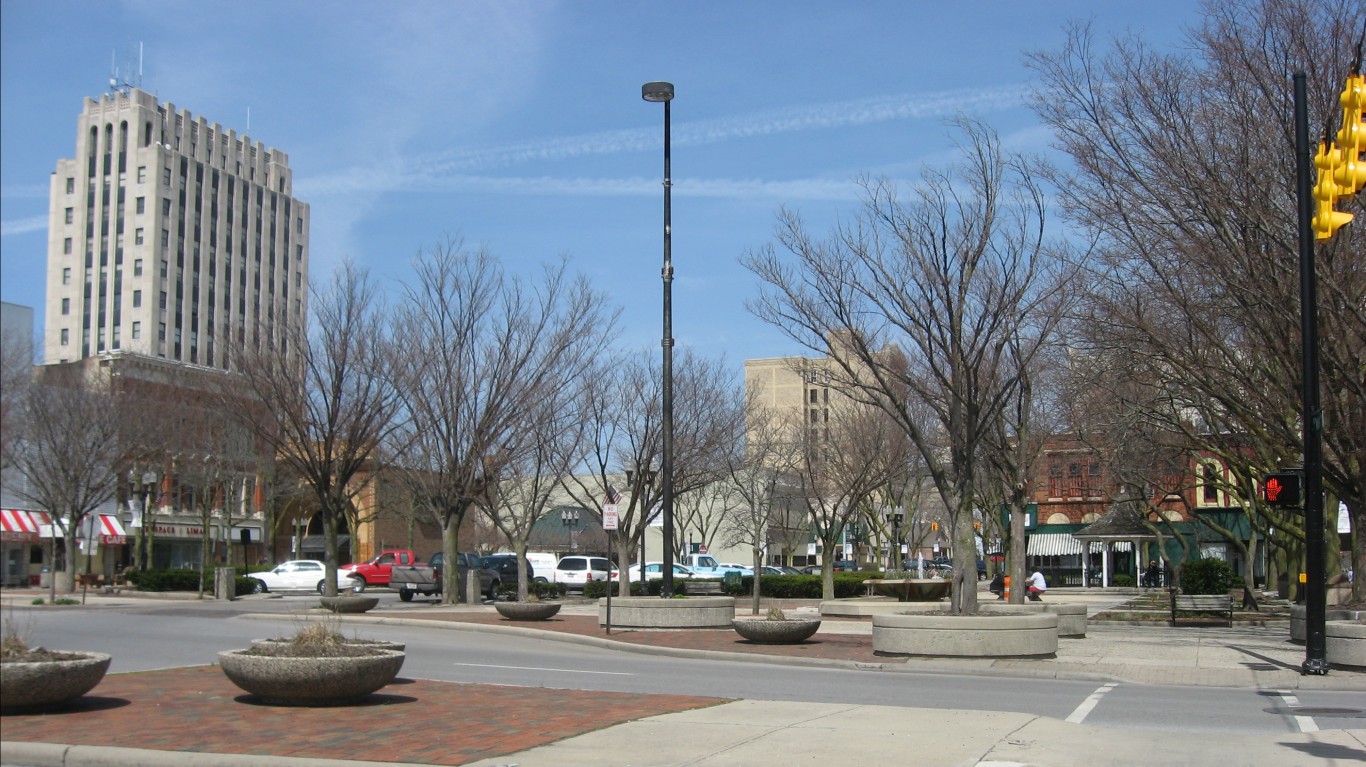
Ohio: Lima
COVID-19 cases as of July 27 in Lima: 12,008 (11,638.5 per 100,000)
COVID-19 cases as of July 27 in Ohio: 1,117,109 (9,556.8 per 100,000)
Peak pandemic unemployment in Lima: 20.4% (April 2020)
Lima population: 103,175 (256.3 per sq. mi.)
These are all the counties in Ohio where COVID-19 is slowing (and where it’s still getting worse).
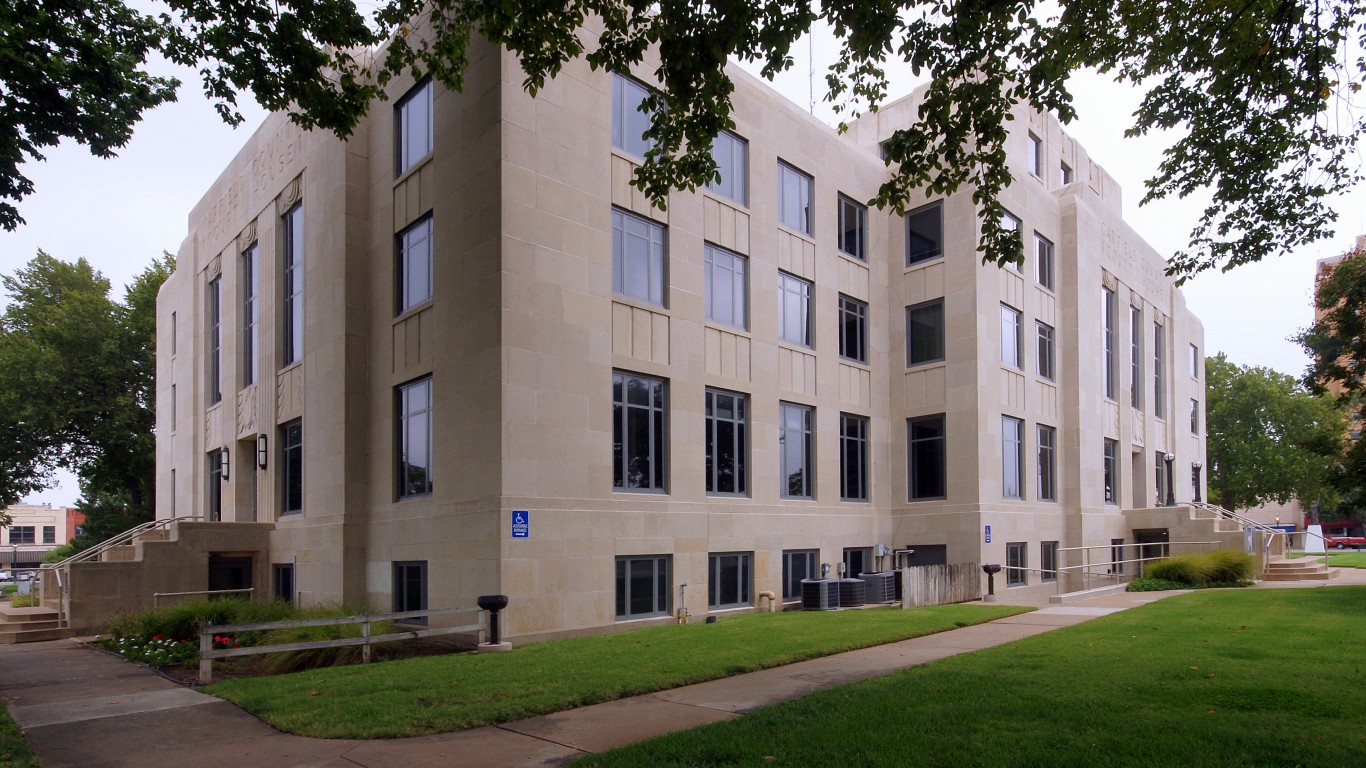
Oklahoma: Enid
COVID-19 cases as of July 27 in Enid: 7,877 (12,725.8 per 100,000)
COVID-19 cases as of July 27 in Oklahoma: 465,398 (11,761.5 per 100,000)
Peak pandemic unemployment in Enid: 11.7% (April 2020)
Enid population: 61,898 (58.5 per sq. mi.)

Oregon: Salem
COVID-19 cases as of July 27 in Salem: 28,284 (6,691.6 per 100,000)
COVID-19 cases as of July 27 in Oregon: 211,998 (5,026.3 per 100,000)
Peak pandemic unemployment in Salem: 13.1% (April 2020)
Salem population: 422,678 (219.8 per sq. mi.)
These are all the counties in Oregon where COVID-19 is slowing (and where it’s still getting worse).

Pennsylvania: Reading
COVID-19 cases as of July 27 in Reading: 48,630 (11,633.3 per 100,000)
COVID-19 cases as of July 27 in Pennsylvania: 1,216,551 (9,502.8 per 100,000)
Peak pandemic unemployment in Reading: 17.2% (April 2020)
Reading population: 418,025 (488.1 per sq. mi.)

Rhode Island: Providence-Warwick, RI-MA
COVID-19 cases as of July 27 in Providence: 208,567 (12,888.3 per 100,000)
COVID-19 cases as of July 27 in Rhode Island: 152,971 (14,439.9 per 100,000)
Peak pandemic unemployment in Providence: 18.5% (April 2020)
Providence population: 1,618,268 (1,019.8 per sq. mi.)

South Carolina: Greenville-Anderson
COVID-19 cases as of July 27 in Greenville: 126,489 (14,118.0 per 100,000)
COVID-19 cases as of July 27 in South Carolina: 602,412 (11,700.2 per 100,000)
Peak pandemic unemployment in Greenville: 12.5% (April 2020)
Greenville population: 895,942 (330.5 per sq. mi.)

South Dakota: Sioux Falls
COVID-19 cases as of July 27 in Sioux Falls: 42,584 (16,419.6 per 100,000)
COVID-19 cases as of July 27 in South Dakota: 124,750 (14,101.5 per 100,000)
Peak pandemic unemployment in Sioux Falls: 10.7% (April 2020)
Sioux Falls population: 259,348 (100.7 per sq. mi.)
Tennessee: Cleveland
COVID-19 cases as of July 27 in Cleveland: 17,550 (14,319.2 per 100,000)
COVID-19 cases as of July 27 in Tennessee: 874,499 (12,805.3 per 100,000)
Peak pandemic unemployment in Cleveland: 14.3% (April 2020)
Cleveland population: 122,563 (160.5 per sq. mi.)
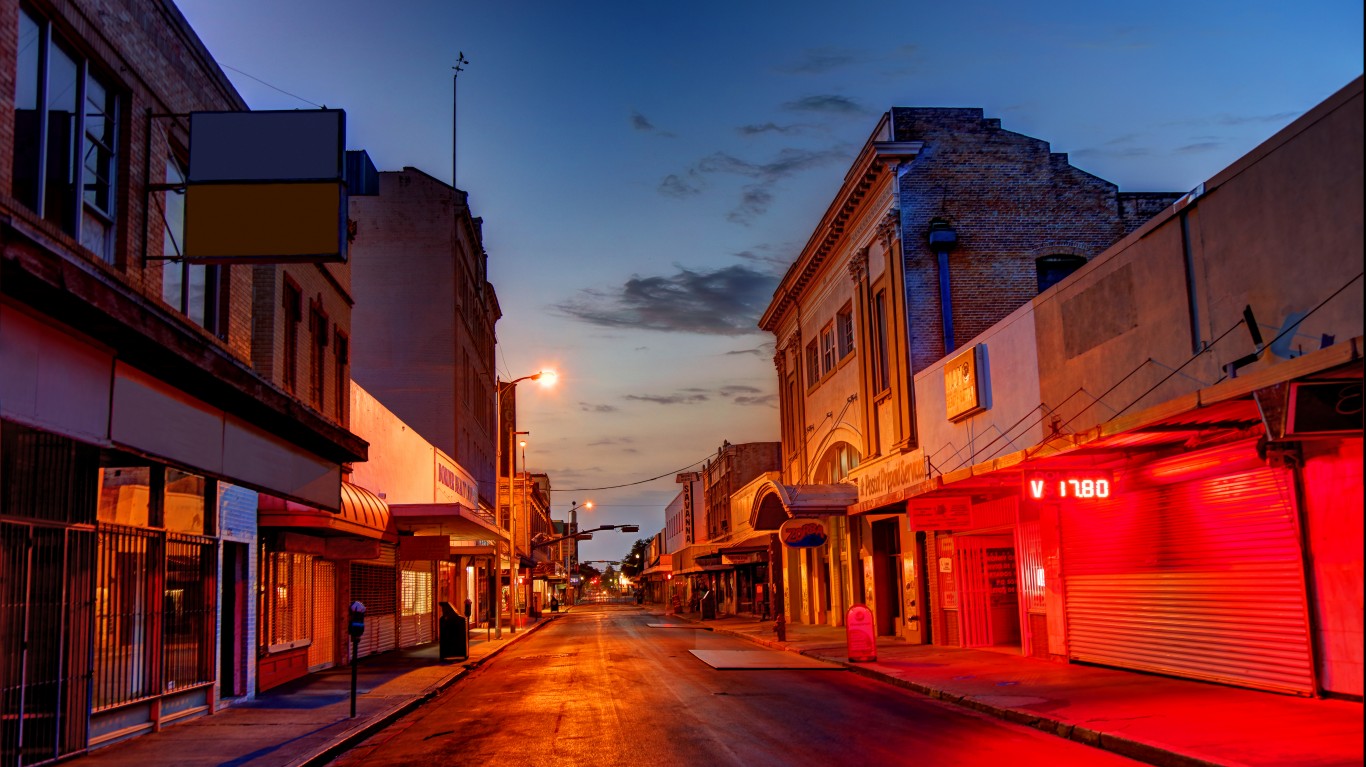
Texas: Laredo
COVID-19 cases as of July 27 in Laredo: 47,609 (17,405.7 per 100,000)
COVID-19 cases as of July 27 in Texas: 3,029,285 (10,447.3 per 100,000)
Peak pandemic unemployment in Laredo: 14.3% (May 2020)
Laredo population: 273,526 (81.4 per sq. mi.)
These are all the counties in Texas where COVID-19 is slowing (and where it’s still getting worse).
Utah: Provo-Orem
COVID-19 cases as of July 27 in Provo: 102,462 (16,612.1 per 100,000)
COVID-19 cases as of July 27 in Utah: 422,619 (13,182.3 per 100,000)
Peak pandemic unemployment in Provo: 8.1% (April 2020)
Provo population: 616,791 (114.3 per sq. mi.)
These are all the counties in Utah where COVID-19 is slowing (and where it’s still getting worse).

Vermont: Burlington-South Burlington
COVID-19 cases as of July 27 in Burlington: 9,875 (4,513.6 per 100,000)
COVID-19 cases as of July 27 in Vermont: 22,929 (3,674.6 per 100,000)
Peak pandemic unemployment in Burlington: 14.8% (April 2020)
Burlington population: 218,784 (174.7 per sq. mi.)

Virginia: Harrisonburg
COVID-19 cases as of July 27 in Harrisonburg: 13,511 (10,116.3 per 100,000)
COVID-19 cases as of July 27 in Virginia: 684,956 (8,024.8 per 100,000)
Peak pandemic unemployment in Harrisonburg: 10.9% (April 2020)
Harrisonburg population: 133,557 (154.1 per sq. mi.)
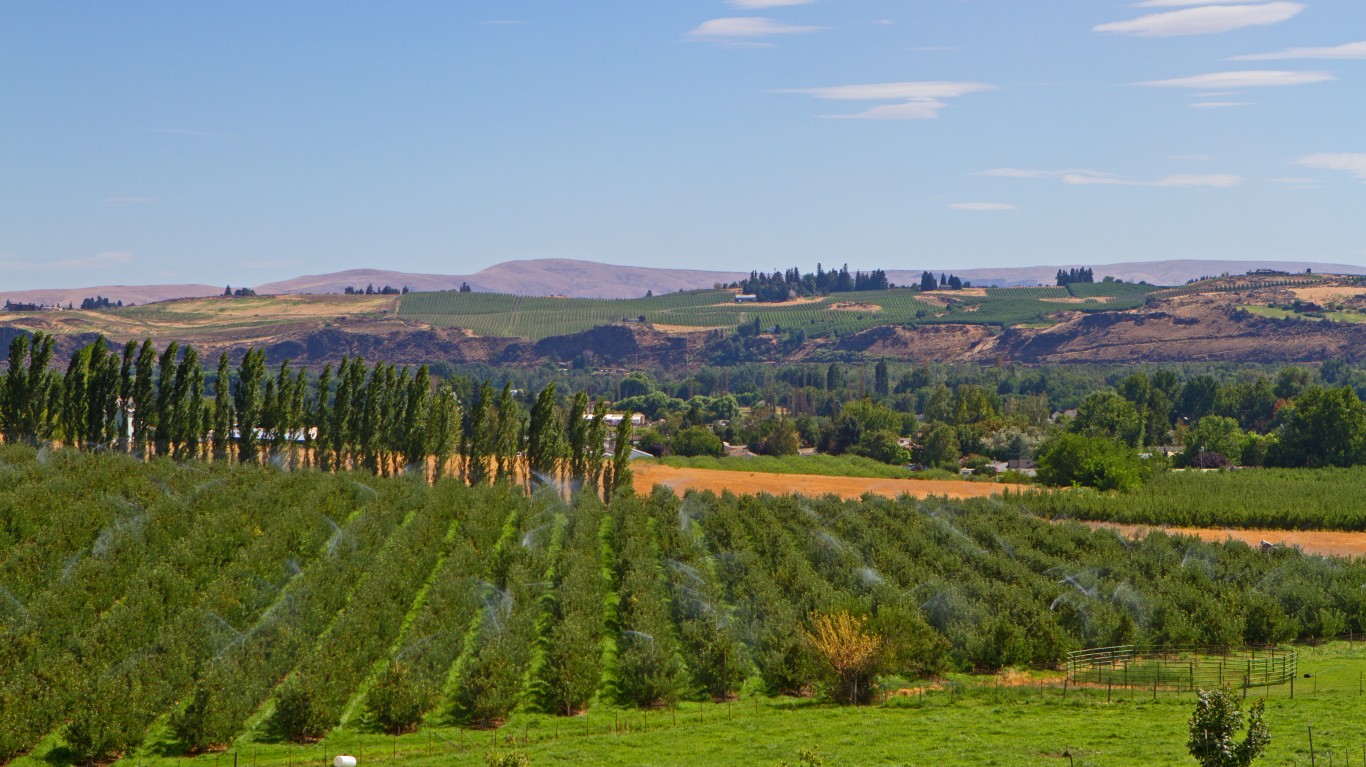
Washington: Yakima
COVID-19 cases as of July 27 in Yakima: 31,297 (12,534.0 per 100,000)
COVID-19 cases as of July 27 in Washington: 460,067 (6,041.7 per 100,000)
Peak pandemic unemployment in Yakima: 14.6% (April 2020)
Yakima population: 249,697 (58.1 per sq. mi.)
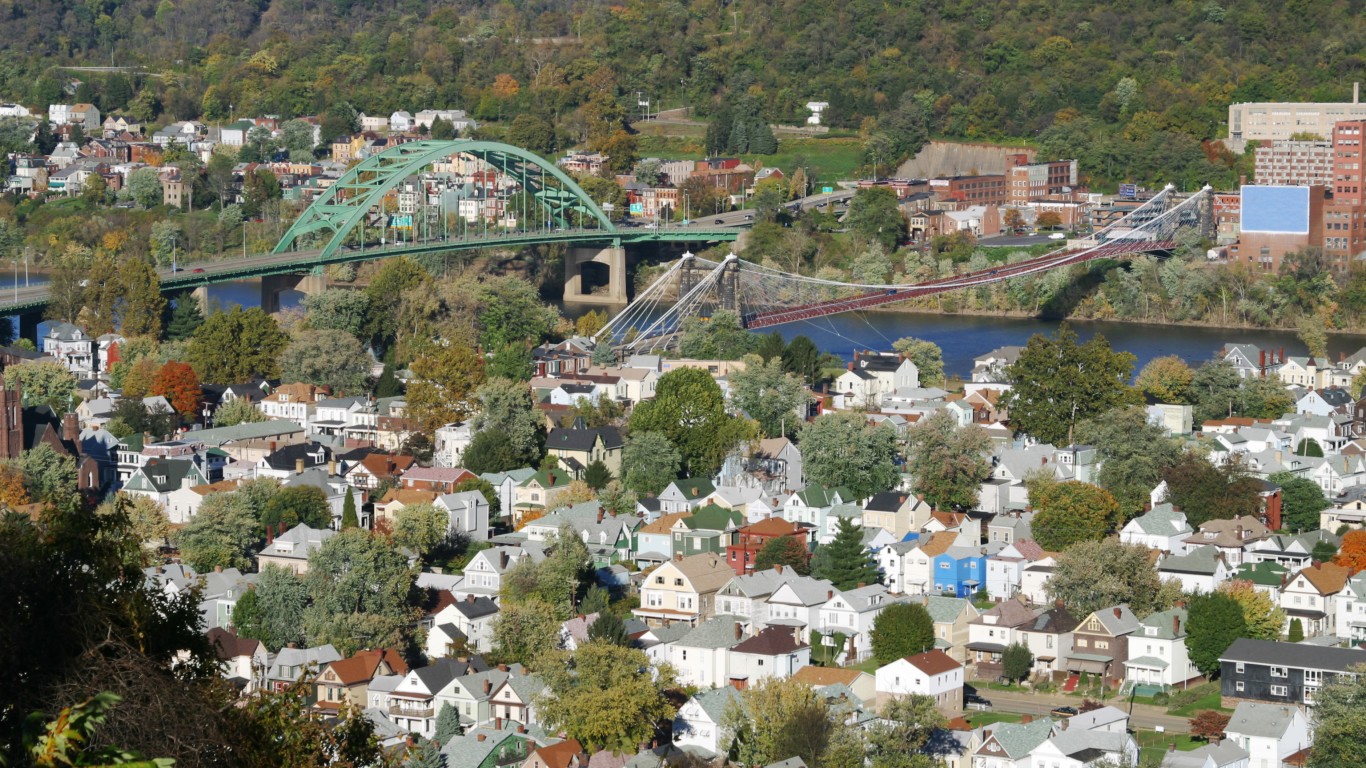
West Virginia: Wheeling, WV-OH
COVID-19 cases as of July 27 in Wheeling: 14,077 (9,950.2 per 100,000)
COVID-19 cases as of July 27 in West Virginia: 164,933 (9,203.1 per 100,000)
Peak pandemic unemployment in Wheeling: 17.7% (April 2020)
Wheeling population: 141,475 (150.0 per sq. mi.)
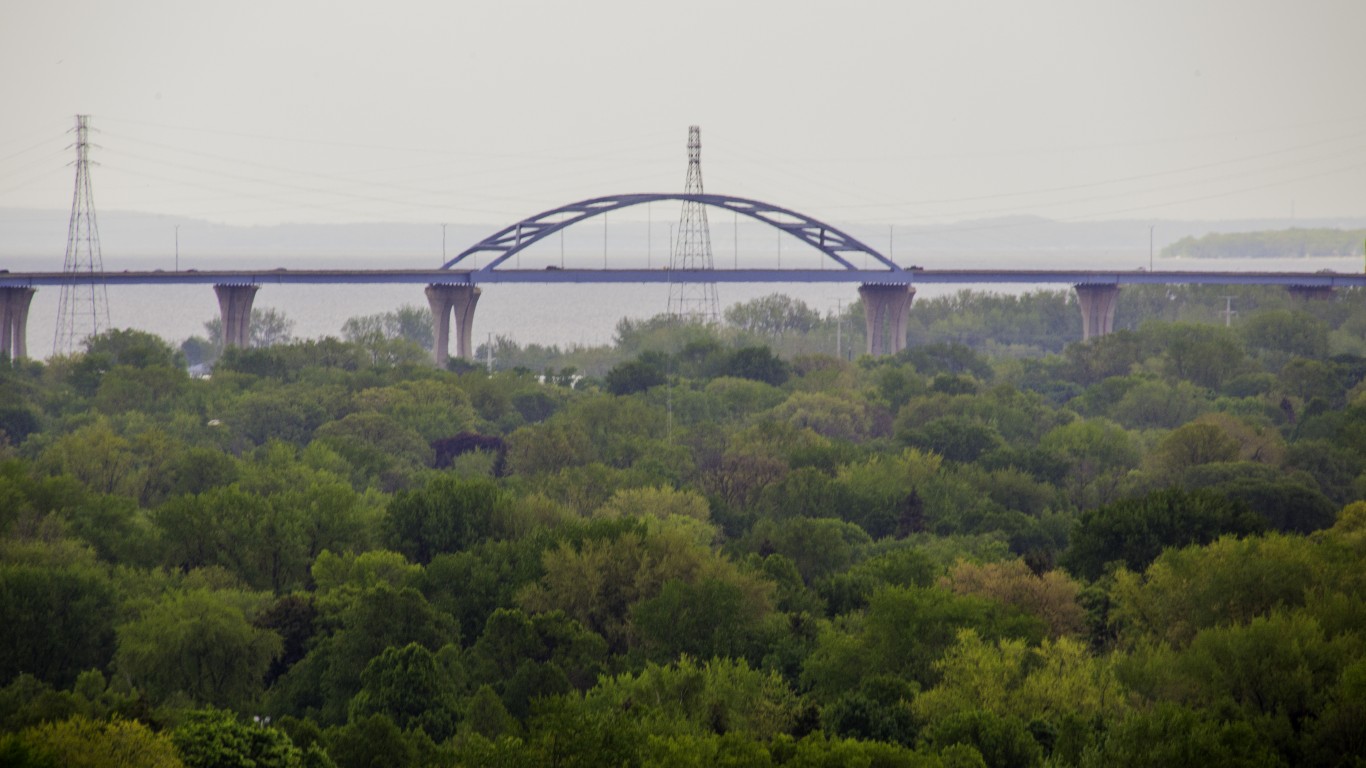
Wisconsin: Green Bay
COVID-19 cases as of July 27 in Green Bay: 43,656 (13,668.1 per 100,000)
COVID-19 cases as of July 27 in Wisconsin: 679,826 (11,676.0 per 100,000)
Peak pandemic unemployment in Green Bay: 13.3% (April 2020)
Green Bay population: 319,401 (170.8 per sq. mi.)
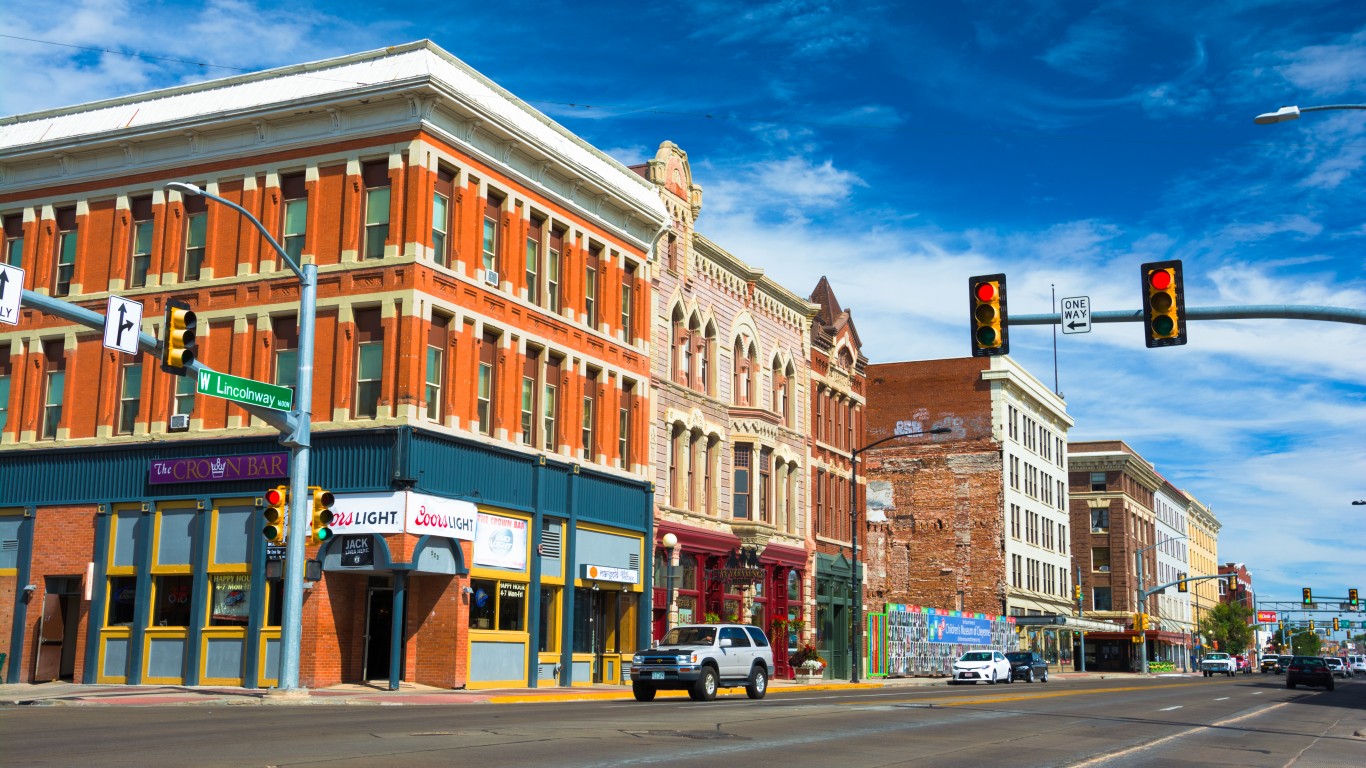
Wyoming: Cheyenne
COVID-19 cases as of July 27 in Cheyenne: 11,263 (11,455.5 per 100,000)
COVID-19 cases as of July 27 in Wyoming: 63,523 (10,975.7 per 100,000)
Peak pandemic unemployment in Cheyenne: 9.2% (April 2020)
Cheyenne population: 98,320 (36.6 per sq. mi.)
Click here to see all coronavirus data for every state.
Start by taking a quick retirement quiz from SmartAsset that will match you with up to 3 financial advisors that serve your area and beyond in 5 minutes, or less.
Each advisor has been vetted by SmartAsset and is held to a fiduciary standard to act in your best interests.
Here’s how it works:
1. Answer SmartAsset advisor match quiz
2. Review your pre-screened matches at your leisure. Check out the advisors’ profiles.
3. Speak with advisors at no cost to you. Have an introductory call on the phone or introduction in person and choose whom to work with in the future
Get started right here.
Thank you for reading! Have some feedback for us?
Contact the 24/7 Wall St. editorial team.